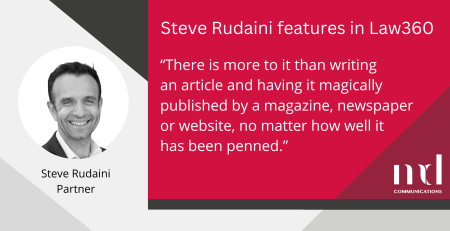You could be forgiven for having “survey fatigue” – there just are so many of them, often simply designed to promote some product or other. But the authoritative ones on important issues deserve our attention.
One such survey is the Law Society’s Law Management Section (LMS) Financial Benchmarking Survey 2019, regarded as an annual “health check” report for smaller and mid-sized practices.
Recently the president of the Law Society, Christina Blacklaws, gave a statement on the health of the legal sector, describing it as an “active and vibrant contributor” to the UK economy, generating over £26 billion in revenues annually and more than £4 billion in net exports.
This survey bears that out, and also shows that the mid-market legal sector appears well positioned to continue to grow as well – 2018 proved a year of solid real-terms growth for firms polled. The survey was directed at over 200 solicitor firms ranking outside the top UK 100 – participants that are not typically approached for financial information, and the results suggest optimism about the future, as well as healthy levels of productivity and generation of chargeable work.
Valuable insights or admin headaches?
We are often asked by clients of all sizes how they should react – and should they even participate – when asked to assimilate financial information for public scrutiny. For some, it represents an administrative headache compounded with fears over potential reputation problems.
Whilst most firms are consistent in their willingness to provide the relevant stats, the supposed benefits of financial transparency has been the subject of debate within the profession for years. Much of the headlines that emanate from law firm financial data is geared towards comparing the pay packets of high profile partners – and, sometimes painfully, exposing underlying weaknesses in firms and their sustainability as businesses.
So why should law firms have to divulge their finances anyway? The majority are not listed entities with outside shareholders to appease, nor are they beholden to regulatory burdens beyond private reporting requirements to the Solicitors Regulation Authority.
This uneasiness is made worse by fears of how clients will respond to the coverage. They may feel that your success in any given year is an indication of overly expensive fees billed – especially given budget constraints within in-house teams – or conversely, that reports of your weaker performance sparks a change with future client relations.
Reasons to engage
In fact, there are good reasons why and how firms can constructively engage with financial surveys – whether by the Law Society, B2B publications, or national press looking to drill down into your financials with sceptical eyes.
The first reason is obvious; the information will become public anyway. The uptake of law firms in England and Wales transitioning to Limited Liability Partnerships (LLPs) over the last 20 years has been overwhelming, where structuring the business this way gave partnerships greater protection over personal assets that was previously only available to companies. This has also meant a higher reporting requirement for businesses when filing annual accounts at Companies House.
This provides a useful tool for journalists who take it upon themselves to retrieve and report the financial results of law firms, regardless of their participation in media surveys. Leaving yourself open to media scrutiny in this way means coverage gets skewed and can lack appropriate context.
Secondly, comparing your performance to peer law firms makes for a highly effective tool in understanding the competition – survey reports are typically accompanied by dozens of management interviews explaining their operational efficiencies, leadership style, and business objectives, which can help establish a benchmark for targeted financial improvement.
Thirdly, getting involved in the process will prove less stressful than ignoring it altogether. It’s wishful thinking that media outlets profiling your financial performance will do so without resorting to off-record interviews from former employees in order to build a picture of your current market position. Moreover, participation with media and transparency with financials are stepping stones to building relationships with editors and reporters – and present an opportunity to market your strengths, contextualise your weaknesses, and, in effect, enhance your reputation as a thought leader with strategic aims.
Warts and all
Ultimately, when utilised correctly, having that public conversation about your standing as a business – financial warts and all – can create a positive influence – building a reputation for the services you sell, and potentially broaden your profile to media savvy clients.
We would be interested in hearing views from law firms on this, so get in touch and let us know what your experiences are – and whether you require external support.
Notes: The Law Society LMS Financial Benchmarking Survey 2019 was based on questionnaires completed by 210 firms from across England and Wales. Participants included around a quarter of firms ranked 101 to 200 based on revenue, and other mid-sized and smaller firms (although there was under-representation of smaller firms). Those taking part had a combined income of £1.1 billion, mainly from domestic work.












